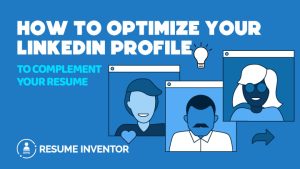How to Build an Effective Resume

Do you want to get employed? The most critical part of getting a job is to create a resume. If your employer is not pleased with your resume, then you won’t be called for an interview. Thus, here are the Ways to build an effective resume.

What do you mean by a Resume?
A resume is a formal document describing your professional experiences, skills, education, accomplishments, etc., enabling you to get employed.
What are the different types of Resumes?
1. Chronological Format
It is a resume that mentions your work history and experience. It is good for those candidates who have consistent job experience.
2. Functional Format
This type of resume mentions your skills rather than your work history. It is preferred for those candidates who have regular changes in their couriers.
3. Combination Format
This type of resume is a mixture of chronological and functional formats and provides equity in skill and experience. It is applied to candidates who have different experience and skills.

Guide to Building an effective and exceptional resume: –
1. Include a LinkedIn profile on your resume
Adding your LinkedIn profile to your resume shows the employer your professional network and social media expertise. It gives an insight into how you are as a person and what are your skills and experiences.

2. Include the ‘Right’ Keyword
The right keyword is very important in a resume as companies use ATS (Applicant Tracking System) which searches specifically for keywords related to jobs and grades the resume. It helps the resume to land at the first position in an employer’s pile.

3. Keep the length between 475-600 words
It is preferred that resumes should be short and only one page long as hiring managers have a very short period to look up resumes and select the best employee who suits their requirements. It demonstrates professionalism and respect for the employer’s times. Also, it shows clarity of words and ideas.

4. Do not use difficult or buzzwords
Using buzzwords leads to a lack of specificity and originality. It decreases the impact over time making it cliche or insincere. Employees may interpret buzzwords incorrectly. There should be concrete examples and specific language to strengthen the resume instead of using buzzwords.

5. Information should be organized manner
Organizing information in a resume brings clarity of words and professionalism. It also helps to highlight your most important skills, and expertise. It is easier for the hiring manager to access information in a limited period. Proper organization of words contributes to the visual appeal of the resume.

6. List your experiences, skills, education, and personal interests
Listing your qualifications and interests improves your searchability in the market and helps you to communicate your potential with the employer. Also, it helps you to differentiate yourself from other candidates. It becomes very easy to alter changes in the resume for a particular role.

7. Customize for each Job Application
It is very important to customize a resume for each job application as it provides relevance. It also shows that you have dedicated your time to making your resume with passion and honesty. Personalization makes a stronger impact on the employer.

8. Review other samples of Resume
Reviewing other samples works as a source of inspiration and motivation to make a good resume. It is very important to understand the trends and processes and learn from the mistakes made in other resumes. A valuable learning experience helps you to improve your resume and make it efficient enough to get a job.

Do’s and Don’ts of Resume Writing: –
| DO’S | DON’TS |
| Focus on Easy-readable content | Don’t mislead your employees with false details |
| Keep positive results and accomplishment | Don’t include lengthy and difficult-to-read content |
| It should be a Direct ad Short | Don’t use informal tones |
| Resume should be error-free | Don’t use a confusing layout |
| List experiences in reverse chronological order | Don’t use the same resume for all job applications. |
Importance of Resume
- Your resume is the first step and impression in front of the employer.
- It is very important to highlight your achievements and work experience to prove yourself the best candidate for the post.
- A resume helps you to differentiate yourself from your competitors or candidates.

Frequently Asked Questions: –
Q1. What is a CV?
Ans- A resume is short and gives precise detail and a CV has a detailed view of a candidate’s skills, and expertise.
Q2. Can we write a resume without any experience?
Ans- Yes, we can write resumes without any experience by adding certain details about ourselves.
Q3.Define resume template.
Ans- These templates are pre-defined compositions that provide a structured and organized look to create a template.
Q4. What is the Applicant Tracking System (ATS)?
Ans- ATS is used to scan resumes. It looks for a group of words that meet the job requirements and it also grades the resume.
Q5. What is a resume example?
Ans-Resume examples are the “mock-ups” that show us what a resume should look like.
Conclusion: –
I hope the information provided on how to build an effective resume will be of great help. A resume serves as the final opportunity to recruit for a job and express gratitude for the opportunity to apply.
For any queries feel free to leave a comment in the comment section below.



